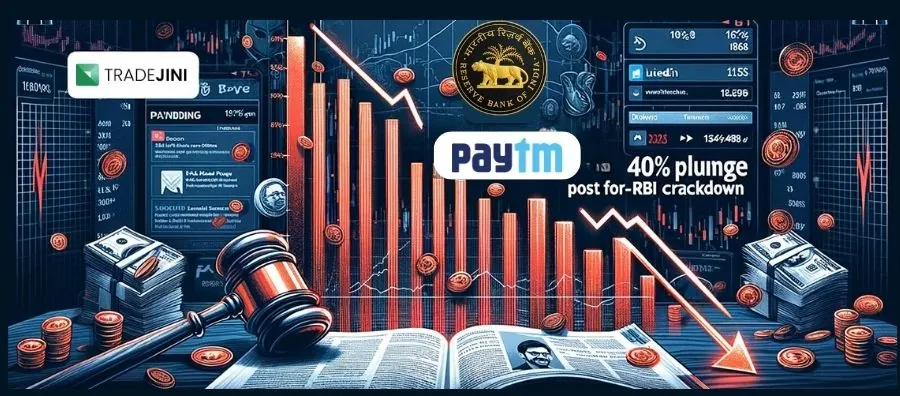The Indian stock market is a vibrant arena for investors seeking high-yielding returns, governed by strict regulatory frameworks established by the Securities and Exchange Board of India (SEBI) under the Ministry of Finance. However, certain practices evade this oversight, operating in legally ambiguous territory. One such practice, Dabba Trading, exists on the fringe of legality and is both risky and illegal. Here’s an in-depth look at Dabba Trading, how it works, and why it's prohibited in India.
What is Dabba Trading?
Also referred to as ‘box’ or ‘bucket’ trading, Dabba Trading is an off-the-record trading practice. In this setup, traders bypass official stock exchanges like the National Stock Exchange (NSE) and Bombay Stock Exchange (BSE) and conduct transactions off the books through brokers who facilitate these trades. Rather than being real trades on legitimate exchanges, Dabba transactions mimic stock movements in a more gambling-oriented manner, tracking market prices without the actual purchase or sale of securities.
How Does Dabba Trading Work?
In Dabba Trading, brokers mirror the price movements listed on the official exchanges without executing trades on these platforms. The orders exist only in the broker’s private ledger, creating an unregulated space where trades lack official record-keeping, regulatory oversight, and investor protection. Brokers typically conduct these transactions through non-commercial locations or private arrangements.
For example, an investor might place a hypothetical buy order for shares of a company at a specific price through a Dabba broker. If the stock’s price rises, the broker pays the investor the difference; if the price falls, the investor compensates the broker. Essentially, these transactions bypass formal exchanges entirely, meaning the stocks are never legally bought or sold.
Why is Dabba Trading Illegal?
Dabba Trading is deemed fraudulent for several reasons:
- Lack of Regulatory Oversight
Since Dabba Trading operates outside SEBI’s jurisdiction, these trades aren’t monitored or subject to standard stock market regulations. This absence of oversight exposes investors to the risk of manipulated prices and dishonest brokers, with no legal mechanisms to resolve grievances or recover lost funds.
- Absence of Investor Protection
Dabba Trading strips investors of this legal shield. Should a Dabba broker choose to defraud clients or disappear with their funds, investors have little recourse, as these trades are untraceable and undocumented.
- Tax Evasion
Legal stock market transactions are subject to various taxes like the Securities Transaction Tax (STT) and the Commodity Transaction Tax (CTT). Dabba Trading, however, operates under the table, enabling participants to evade these taxes. While it might seem beneficial in the short term, tax evasion through such means harms the economy and is a punishable offence.
- Market Manipulation
Dabba brokers, unrestrained by market regulations, have the freedom to artificially inflate or deflate stock prices, generating profits at the investor’s expense. Such actions compromise market integrity and create significant financial risks for participants.
- Links to Criminal Activities
Dabba Trading transactions are commonly conducted in cash, facilitating unaccounted income that may be used for illicit activities. With no formal tracking mechanisms, this trading method can encourage money laundering and, in some instances, involve criminal coercion and extortion.
Also Learn: Gamma in Option Trading: An Overview with Examples
Consequences of Engaging in Dabba Trading
Investors involved in Dabba Trading face severe consequences, including heavy fines, potential legal action, and even imprisonment. SEBI actively pursues violators under the Securities Contracts Act of 1956 and the Indian Penal Code (Sections 406, 420, and 120-B). Convicted traders or brokers risk up to ten years in prison, fines up to ₹25 crore, or both.
Why Avoid Dabba Trading?
While Dabba Trading might seem like an attractive shortcut for quick gains, it’s an illegal activity that exposes investors to high financial and legal risks. Not only does this practice undermine market credibility, but it also creates vulnerabilities for individuals who are lured into these unregulated setups. For a secure investment journey, traders are encouraged to stick to regulated platforms under SEBI’s oversight, ensuring that they benefit from legal protections and contribute to a transparent and fair financial market.
This awareness is crucial for avoiding involvement in potentially dangerous financial practices. SEBI continually educates the public on the importance of safe, regulated trading, reminding investors to stay informed and steer clear of Dabba Trading for their financial well-being.
Also Read: What Is Fiat Money? Explanation, Advantages, and Economic Impact



